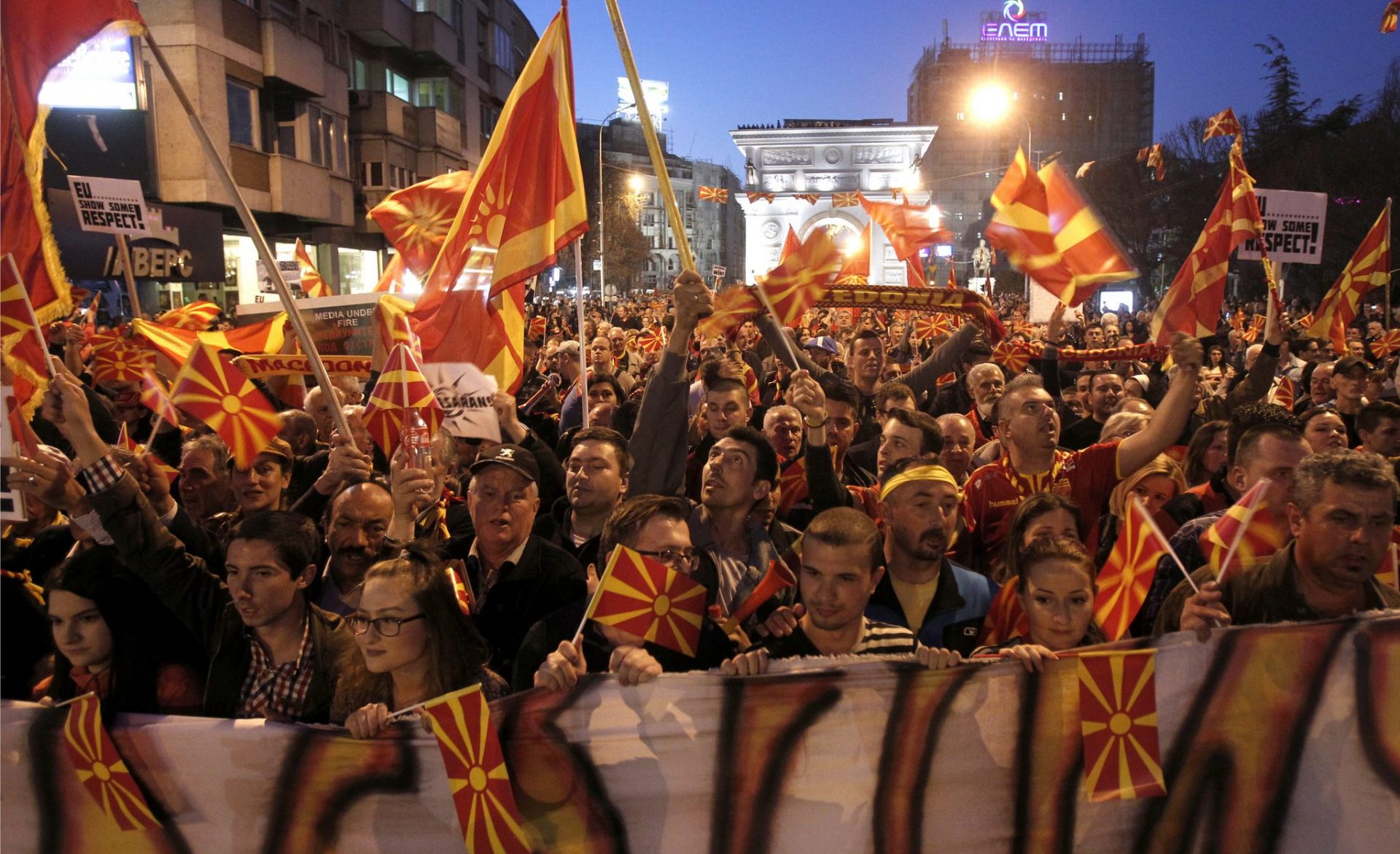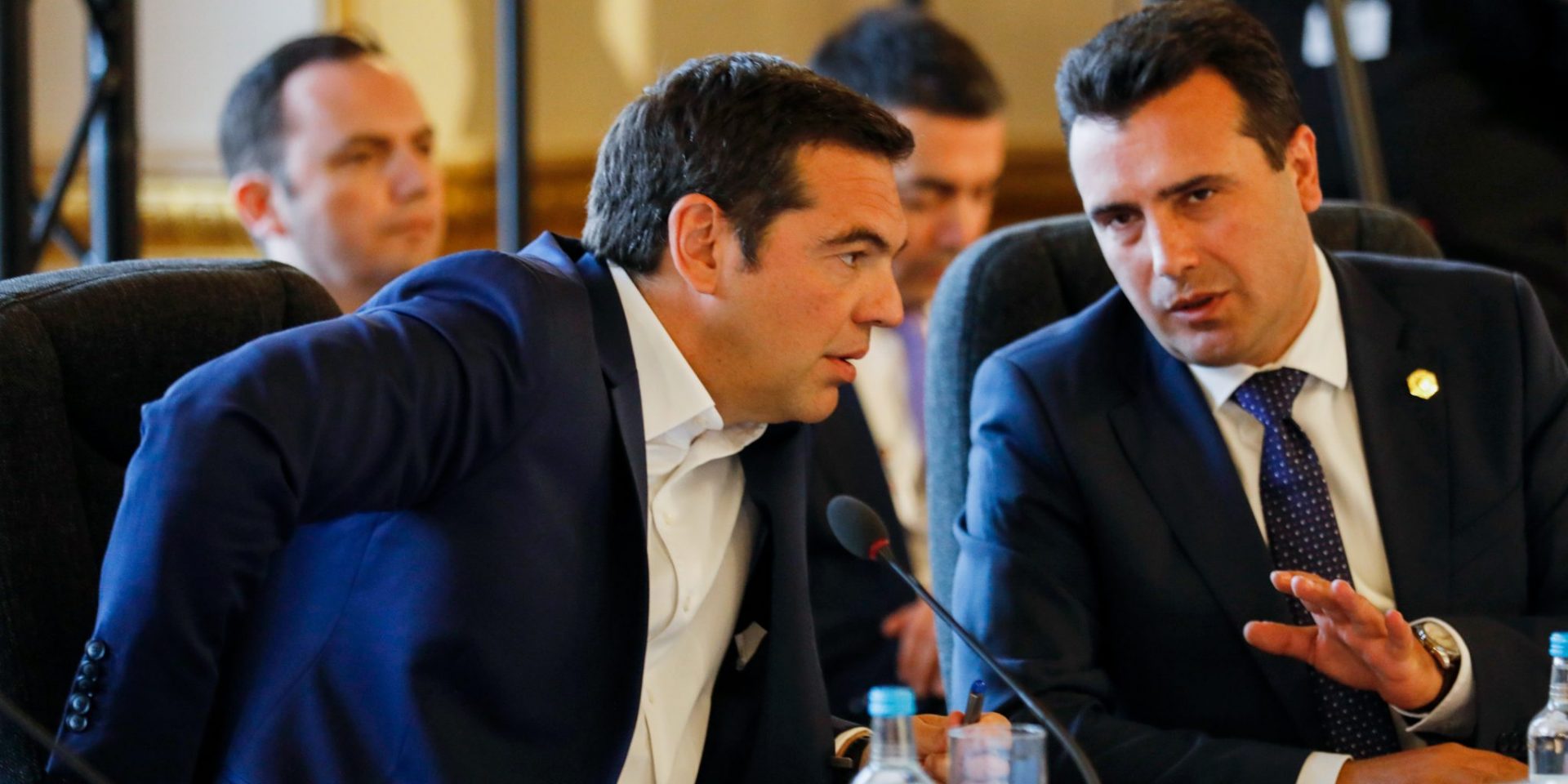
After the achievement of the historical “name-deal” between Macedonia’s and Greece’s governments, which would allegedly will bring an end to their 27 years long dispute, on 30 September Macedonians will have the opportunity to decide for their country’s future. Whatever the referendum’s outcome will be, many pundits argue that this will have a tremendous impact on the Macedonian Euro-Atlantic integration path.
The relevance of the current scenario is proven by the several international leaders’ visits that are recently taking place in Macedonia ahead of the referendum. A considerable number of representatives from countries such as Germany, the US, United Kingdom and Italy, and as well as officials of EU and NATO are manifesting their support to Macedonians institutions and encouraging citizens to go vote.
It is a “once-in-a-lifetime occasion” as Commissioner Johannes Hann has declared during his last meeting with Zoran Zaev on September 18, 2018. Also, he stressed that citizens should decide independently and take into consideration those benefits that this agreement would provide them in the health, education, food’s quality as well as the employment field.
The hostilities between Greece and Macedonia rose up after the latter achieved the independence from Yugoslavia in 1991. On the one hand Greece did not allow some other state to carry the name of one of its provinces: on the other hand it wanted to avoid any possible Macedonian claims about those Greek lands inhabited by Macedonian people during the Yugoslav period.
A compromise was found in 1993 when Macedonia was admitted within the United Nations with the acronym of FYROM – Former Yugoslav Republic of Macedonia. Its Euro-Atlantic membership’s paths has constantly been interrupted by the Greek veto, until the so called “Prespa Agreement” was reached last June.
There, both the Foreign Ministers Dimitrov and Kotzias and the Prime Ministers Zaev and Tsipras, signed the final agreement for the settling of the name dispute and the establishment of a strategic partnership. This agreement enshrines the proposed name’s change of FYROM into “Republic of North Macedonia” which allows the latter to start its Euro-Atlantic integration path as well as other issues concerning nationality, language and even national monuments.
The adoption of this deal requests several changes in the Macedonian constitution and that is the main reason why Macedonian President Gjorge Ivanov decided not to sign it. He considered it as a constitutional violation and a means which could put his country in a subordinate position to a foreign state.
Nevertheless, Macedonia’s Parliament ratified it twice counting 68 of the 120 MPs voting in its favour and without any attempt to vote against it, since the VMRO – DPMNE MPs boycotted the session and did not attend it. The second ratification implies the President obligation to sing the deal, but since there are not any deadlines neither in the constitution neither in the national law, he may not be in hurry to do so.
After the second ratification, the current SDSM government MPs voted in order to call for a referendum to be held on 30 of September by asking the following question: Are you in favour of EU and NATO membership by accepting the Agreement between Republic of Macedonia and Republic of Greece?
The nationalist opposition party VMRO-DPMNE, strongly criticized the wording of the referendum question and consider it as manipulative, owing to the lack of any mentions about the name’s change. They accused SDSM not to pose the question in a democratic and neutral way, by entering the Euro-Atlantic’s stakes in order to enhance the possibilities of positive outcomes.
After the initial VMRO critics and threats of jeopardizing the referendum by urging people not to go vote and undermining the achievement of the necessary quorum for the effectiveness of the results, the relations between the ruling and the opposition parties seem to be improved.
The SDSM has accepted the VMRO request to change the electoral law before the next presidential election, by forming a technical government to make the latter fairer and more regular. In exchange, the opposition party declared to stop to boycott the appointment of the State Electoral Commission members (DIK), set up for the referendum organization.
Nevertheless, during the meeting with the Commissioner Hann, the VMRO leader Mickoski presented his party’s position as still unclear about the participation to the referendum, reiterating his accuses against the agreement with Greece.
The high relevance of the referendum is demonstrated by the strong campaign organised in order to support it, which includes the international leaders’ visits that are lately occurring in Macedonia: that is even a proof of the geopolitical interests that are interfering in the region.
Recently, Washington condemned attempts by Moscow to transfer money and to lead broader online disinformation campaigns in order to discourage voters from taking part, owing to its opposition to any NATO enlargement in Eastern Europe and the Balkans. Russia has even been accused to entertain relations with some Greek political groups in order to foment local riots against the name deal and to give rise to violence in Macedonia before the referendum.
These alleged Russian-Greek ties have been denied by the expulsion of the Russian diplomats from Greece last July as well as the Zaev’s confirmation about the absence of any Russian interferences in the referendum process. Indeed, Zaev stated he recognises the Russia’s aversion to Macedonia’s possible access to NATO but also the importance for Macedonia to keep its relations with Russia close and strong.
On the one hand, after the launch of the referendum campaign, a coalition of about 30 different political parties was formed in order to support the “yes”: the request to join the coalition has been sent also to VMRO, whose position is still unclear.
On the other hand, a coalition of NGOs and 29 small parties launched the campaign “Macedonia boycotts” in order to discourage citizens from casting their vote and not to reach the 50% + 1 needed for the validity of the referendum.
With the strong SDSM “yes” campaign and the large international support on this regard, recent opinion polls suggest that the scales needle is sloping toward this side and a majority of Macedonians will support the name deal. In the recent poll conducted by International Republican Institute (IRI), the 57% agree with the use of “North Macedonia” in order to join the two organizations, while 22% said they don’t: overall, 83% declared to be in favour the access to the EU while the 77% want to become a NATO member[1].
The current condition shows that the voters are tending towards the “yes”, but two issues remain open: if the role played by VMRO will enable to achieve the 50% + 1 of the national voters and if the Greek parliament will ratify the Prespa agreement after the referendum procedure will be completed.
[1] https://www.iri.org/resource/macedonia-poll-high-levels-support-eu-nato-ahead-referendum


